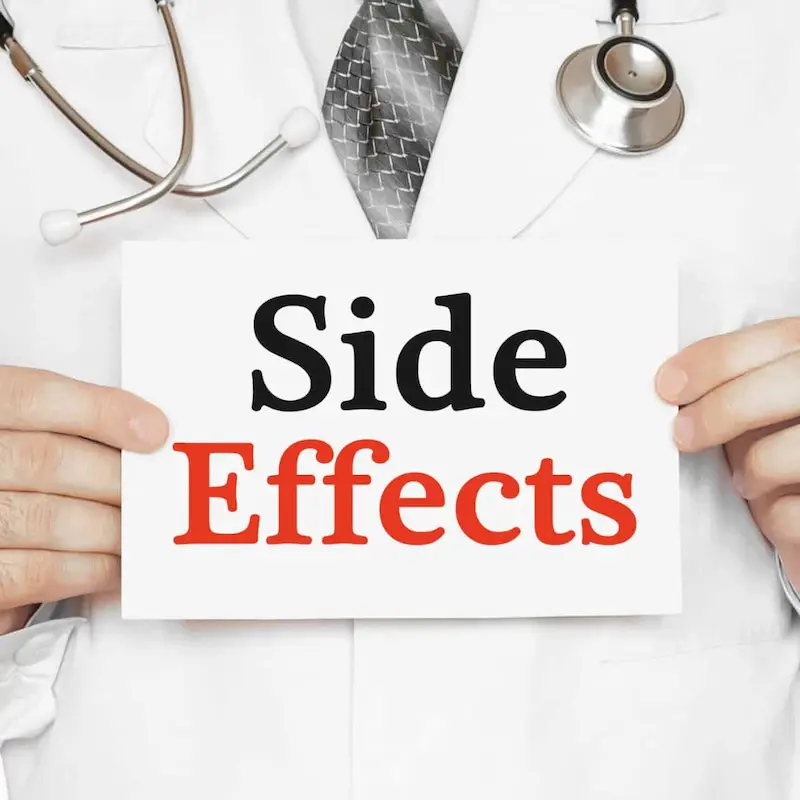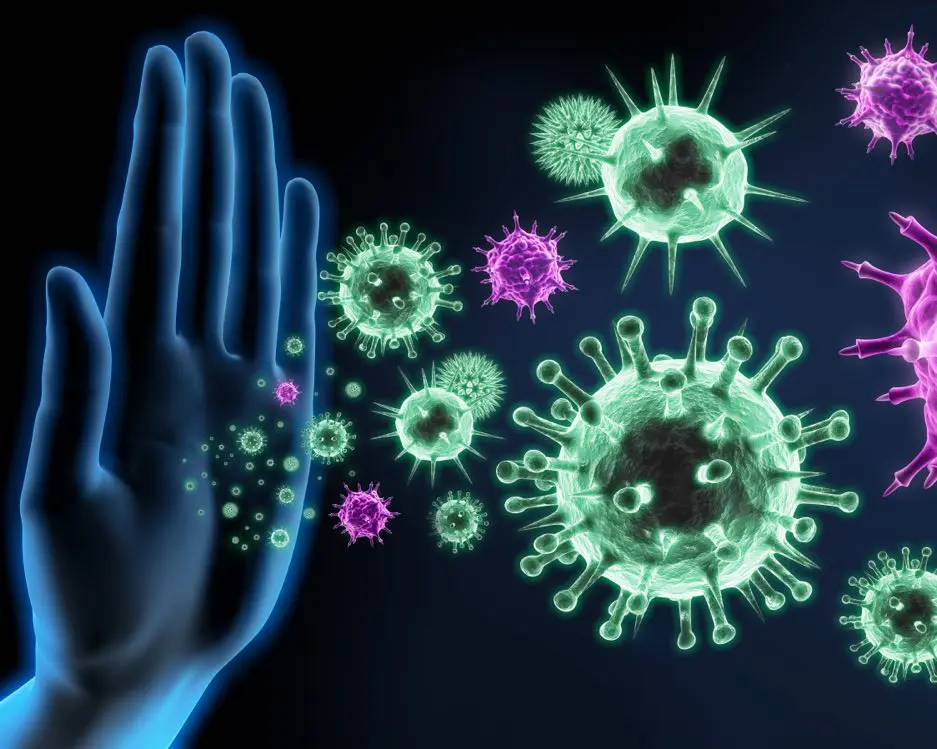Anabolic steroids, synthetic substances similar to the male sex hormone testosterone, are often used to promote muscle growth and enhance athletic performance. Despite their popularity and widespread use, particularly in the realm of bodybuilding and competitive sports, the effects of these substances extend beyond muscle enhancement. One significant area of impact is the body’s immune system. The relationship between anabolic steroids and immune function is complex, as these substances interact with various physiological systems, including hormonal and immune pathways.
Understanding the effects of anabolic steroids on the immune system requires a multidisciplinary approach, analyzing both the clinical applications and the risks associated with non-medical usage. While steroids are utilized in medicine to treat certain conditions, their adverse effects when used without medical supervision or in excess can undermine the body’s defense mechanisms. The interplay of these drugs on a molecular level involves various mechanisms of action which have implications for both immune competency and vulnerability to infection.
Quick Summary
- Anabolic steroids, chemically similar to testosterone, can significantly affect the body’s immune response.
- Clinical use of anabolic steroids requires careful consideration of their immunomodulatory effects.
- Misuse of anabolic steroids can lead to compromised immune functions, increasing the risk of infections.
Fundamentals of Anabolic Steroids

Anabolic steroids, including anabolic androgenic steroids (AAS), are synthetic derivatives of testosterone designed to promote muscle growth and enhance physical performance.
Chemical Structure and Classification
Anabolic steroids are classified based on modifications to the basic testosterone molecule structure. These alterations typically involve changes to the steroid nucleus, which can affect the anabolic to androgenic ratio of the compounds. Testosterone serves as the primary endogenous androgenic steroid, which is naturally produced in the human body. The various synthetic derivatives of testosterone are categorized according to their chemical structure and intended effects. For instance, alterations such as alkylation at the 17-alpha position or esterification are common and result in different pharmacokinetic properties.
Endogenous vs. Synthetic Derivatives
Endogenous testosterone is pivotal for normal development and maintenance of male secondary sexual characteristics and reproductive tissues. On the other hand, synthetic derivatives of testosterone, also known as anabolic androgenic steroids (AAS), are designed to mimic the effects of the intact steroid nucleus of testosterone while often aiming to minimize the androgenic effects in favor of anabolic effects. These derivatives are used in a medical context to treat a variety of conditions but can also be used illicitly for performance enhancement. Synthetic AAS differ from naturally occurring steroids in that their alterations permit them to evade metabolism and stay active in the body longer, leading to prolonged effects.
Anabolic Steroids and Immune Function

Anabolic steroids have been found to influence the immune system, particularly impacting immune cells and the modulation of immune responses.
Effects on Immune Cells
Anabolic steroids can alter the number and functionality of various immune cells. Studies suggest that steroids can lead to a reduced count of lymphocytes, including T cells, which are critical for immune response. More specifically, anabolic steroids have been shown to affect both the proliferation and the activation of these immune cells. For example, the use of steroids may result in suppressed lymphocyte proliferation, potentially compromising the body’s ability to fight off infections.
Modulation of Immune Response
The impact of anabolic steroids on immune responses extends to the modulation of cytokine production. Cytokines are signaling proteins that mediate and regulate immunity, inflammation, and the production of blood cells. Anabolic steroids can alter cytokine profiles, skewing the immune response and potentially leading to a state of immunosuppression. This can affect not just the number of immune cells but also how they function during an immune reaction.
Anabolic Steroids in Clinical and Recreational Use

Anabolic steroids have distinct roles in clinical settings as well as varying patterns of use among athletes and recreational users that directly impact athletic performance and physical appearance.
Medical Applications
Anabolic steroids, such as nandrolone decanoate and oxandrolone, are legally prescribed for medical purposes. They are used to treat a range of conditions, including anemia, muscle wasting diseases, and to promote weight gain following surgery or physical trauma. Testosterone propionate is another anabolic steroid that is sometimes used under medical supervision to address testosterone deficiencies and other hormonal imbalances.
- Nandrolone decanoate: For anemia and muscle wasting.
- Oxandrolone: To promote weight gain post-surgery.
- Testosterone propionate: For treating hormonal deficiencies.
Patterns of Abuse Among Athletes and Recreational Users
AAS abuse is prevalent among athletes and recreational users who aim to enhance athletic performance and alter physical appearance. This non-medical use of anabolic steroids like stanozolol and testolactone is often associated with numerous health risks. Athletes may use these substances to potentially improve strength, muscle mass, and endurance, while recreational users might utilize them to achieve a certain aesthetic.
- Stanozolol: Popular for strength and muscle mass.
- Testolactone: Occasionally abused for performance enhancement.
References
Adverse Effects and Risks

The use of anabolic steroids can lead to complex immunological effects, including both immunosuppressive and immunostimulatory outcomes. These effects bear significant implications for chronic diseases and acute infections, potentially exacerbating or mitigating these conditions.
Immunosuppressive vs. Immunostimulatory Effects
Anabolic steroids can modulate the immune system, leading to immunosuppressive or immunostimulatory consequences. The suppression of the immune system may increase the risk of infections, while immunostimulatory effects are associated with an enhanced risk of autoimmune disorders. Specifically, these steroids can inhibit the proliferation of T cells and apoptosis, which are central to immune defense and homeostasis.
Steroids may disrupt cytokine production and alter leukocyte activity, leading to either a reduction in the body’s ability to fight off pathogens or an inappropriate immune activation. Studies have reported that this immunomodulation may contribute to an increased incidence of tumors in steroid users due to a decreased immune surveillance of cancer cells.
Implications for Chronic Diseases and Acute Infections
Chronic diseases such as cardiovascular ailments may be adversely affected by the use of anabolic steroids. Users are at a higher risk of developing myocardial infarction and stroke because anabolic steroids can cause changes in cholesterol levels, hypertension, and changes in the left ventricle’s morphology.
During periods of anabolic steroid use, the body’s changed immune response might alter the course of acute infections. For example, the COVID-19 pandemic has underscored the vulnerability of immunosuppressed individuals to viral infections. Anabolic steroid users may find themselves more susceptible to severe outcomes from diseases like COVID-19 due to their compromised immune systems.
References
- “Anabolic Steroids and the Immune System: https://www.ncbi.nlm.nih.gov/pmc/articles/PMC4462037/
- “Immunosuppressive Effects of Androgenic-Anabolic Steroids”: https://www.sciencedirect.com/science/article/pii/S1521661609000227
- “Cardiovascular Risks of Exogenous Anabolic Androgenic Steroids”: https://www.ahajournals.org/doi/full/10.1161/STROKEAHA.115.008424
Molecular Mechanisms of Action

The molecular interactions of anabolic steroids with androgen receptors play a critical role in their effects on the immune system. These synthetically produced compounds influence gene and transcriptional regulation, which can lead to the proliferation or suppression of various cellular responses.
Interaction with Androgen Receptors
Anabolic steroids are known to exhibit their effects through direct interaction with androgen receptors. Upon entering the body, anabolic steroids bind to these receptors, which are located within the cytoplasm of cells. These complexes then translocate to the nucleus where they act on DNA. Anabolic steroids, due to their androgenic nature, can lead to changes in both immune cell function and proliferation through this pathway.
Influence on Gene and Transcriptional Regulation
The binding of anabolic steroids to androgen receptors significantly influences gene regulation. The activated receptor-steroid complex interacts with specific DNA sequences, which can either upregulate or downregulate the transcriptional activity of certain genes. This transcriptional regulation directly affects the synthesis of proteins involved in immune responses. Regular dosing of exogenous anabolic steroids may alter normal immunomodulatory processes.
Frequently Asked Questions

This section addresses common inquiries regarding the effects of anabolic steroids on the immune system.
How can anabolic steroids impact immune system efficiency?
Anabolic steroids can disrupt the normal functioning of white blood cells, potentially impairing the body’s ability to fight off infections and diseases.
Is there a link between testosterone injections and immune system suppression?
Testosterone injections, a form of anabolic steroid, have been observed to suppress various aspects of the immune response, possibly leading to a higher susceptibility to infections.
What effects do anabolic steroids have on autoimmune diseases?
Studies suggest that anabolic steroids might exacerbate certain autoimmune conditions by increasing the production of antibodies that attack the body’s own tissues.
Can the use of oxandrolone alter immune system responses?
Oxandrolone, an anabolic steroid, is known to modulate the immune system, but its full impact on immune responses requires further research.
Are there long-term immune system repercussions following anabolic steroid usage?
Prolonged use of anabolic steroids may cause lasting changes in the immune system, possibly reducing its efficiency even after cessation of use.
Does the immunomodulatory effect of trenbolone differ from other anabolic steroids?
Trenbolone, a potent anabolic steroid, appears to have unique immunomodulatory effects that differ from other steroids, some of which may be more pronounced. However, its precise impact on immune function is still being elucidated.
References
Dr. Grant Fourie, a specialist in male hormones, is based in Cape Town, South Africa. He provides comprehensive treatments for conditions related to low testosterone, such as erectile dysfunction, fatigue, and mood changes. His methods include hormone replacement therapy and other modern treatment options.
Contact me via email or phone to book personal appointment in my clinic: The Village Square, Cape Town - South Africa



